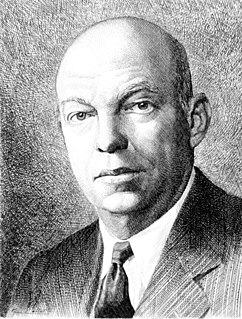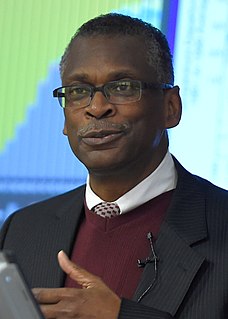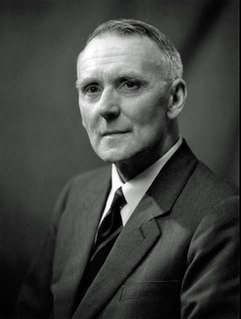A Quote by Edwin Howard Armstrong
Anyone who has had actual contact with the making of the inventions that built the radio art knows that these inventions have been the product of experiment and work based on physical reasoning, rather than on the mathematicians' calculations and formulae. Precisely the opposite impression is obtained from many of our present day text books and publications.
Related Quotes
There was, I think, a feeling that the best science was that done in the simplest way. In experimental work, as in mathematics, there was "style" and a result obtained with simple equipment was more elegant than one obtained with complicated apparatus, just as a mathematical proof derived neatly was better than one involving laborious calculations. Rutherford's first disintegration experiment, and Chadwick's discovery of the neutron had a "style" that is different from that of experiments made with giant accelerators.
But of all other stupendous inventions, what sublimity of mind must have been his who conceived how to communicate his most secret thoughts to any other person, though very far distant either in time or place? And with no greater difficulty than the various arrangement of two dozen little signs upon paper? Let this be the seal of all the admirable inventions of man.
Although human ingenuity may devise various inventions which, by the help of various instruments, answer to one and the same purpose, yet will it never discover any inventions more beautiful, more simple or more practical than those of nature, because in her inventions there is nothing lacking and nothing superfluous; and she makes use of no counterpoise when she constructs the limbs of animals in such a way as to correspond to the motion of their bodies, but she puts into them the soul of the body.
For one thing, there are many "inventions" that are not patentable. The "inventor" of the supermarket, for example, conferred great benefits on his fellowmen for which he could not charge them. Insofar as the same kind of ability is required for the one kind of invention as for the other, the existence of patents tends to divert activity to patentable inventions.
They say that each generation inherits from those that have gone before; if this were so there would be no limit to man's improvements or to his power of reaching perfection. But he is very far from receiving intact that storehouse of knowledge which the centuries have piled up before him; he may perfect some inventions, but in others, he lags behind the originators, and a great many inventions have been lost entirely. What he gains on the one hand, he loses on the other.
For people who make inventions, whether they make scientific inventions or artistic inventions, they're driven by pretty much the same thing. It's some mistrust from somebody saying it couldn't be a certain way, and overthrowing that. But that can happen at any point in history, at any time you come along. It doesn't get better or worse because you're born in this era or that era - I think it's more individualistic. It comes from within, you know, it's an internal thing.




































